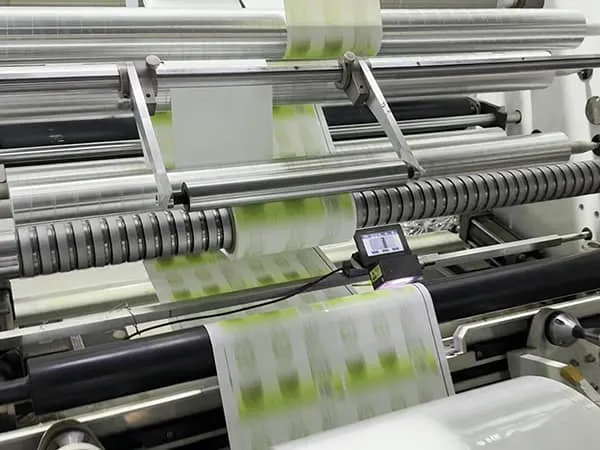
We provide shrink sleeve labels tailored for dairy packaging, including bottles and yogurt cups in a variety of shapes and sizes. Our team manages everything, including design, sizing, plate-making, and testing. This ensures the labels not only fit the container properly but also support the brand’s look and message. Our shrink sleeves are mainly made from PVC, PETG, and OPS, processed with high-quality printing and cutting equipment to ensure a reliable fit, long-lasting durability, and clear, attractive graphics.
PVC shrink sleeves: Used for milk, yogurt, and other dairy drinks. They shrink well and remain stable even at low temperatures
PET shrink sleeves: Suitable for flavored milk drinks and children’s dairy products
PE shrink sleeves: Chosen for large bottles or bulk dairy containers, with excellent moisture resistance and low-temperature durability
OPS shrink sleeves: Ideal for bottles with special shapes, ensuring a close fit and consistent printing results
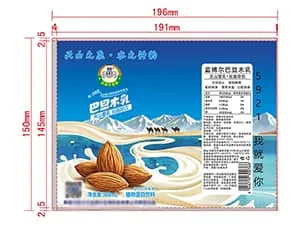
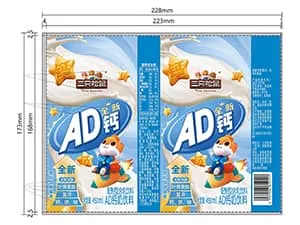
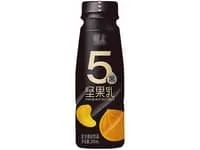
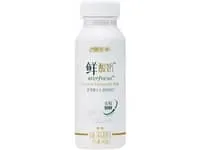
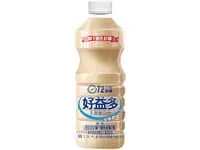
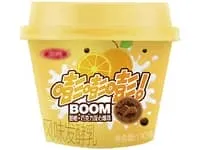
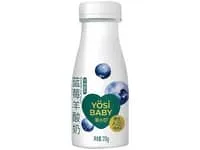
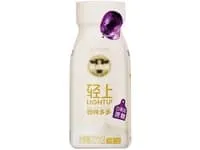
Dairy products need packaging that not only looks appealing but also performs well in chilled or frozen conditions. Our shrink sleeve labels are designed to handle these demands while giving brands flexibility in design and application.
Multi-layer labels combine several films and coatings, so every step has to be managed carefully to keep them strong and looking good. Some of the main points to consider are:
Sensors and vision systems monitor label size, position, shrink quality, and print clarity in real time. Faulty labels are automatically rejected, reducing manual inspection needs.
Labels used on food packaging must be made with safe, certified materials. They need to comply with international rules such as EU 10/2011 and FDA 21 CFR standards, which make sure labels are non-toxic and safe when they come into direct or indirect contact with food.
The environmental impact of labels mainly depends on the materials and adhesives used. Choosing recyclable films and glues that can be removed easily during recycling makes the process smoother and helps reduce waste. Using eco-friendly options is a good way to lower the overall footprint.
If materials and adhesives are not certified for food safety, extreme temperatures may release gases or migration substances that affect taste or safety. To avoid this, certified food-grade materials and adhesives should be used, tested under heating and cold-storage conditions to ensure no harmful release.
Providing one-stop services from original design and material selection to manufacturing and delivery
Serving more than 800 customers